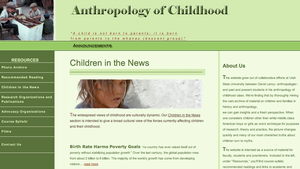(LINKS UPDATED 20.5.2022) When George Marcus, one of the most influential anthropologists, was in Oslo recently, I asked him what he thinks about Open access. His answer surprised me. “Journals? Who cares?”, he replied. There is in his opinion little original thinking in journals, there are no longer exciting debates. “Maybe it’s because I’m getting older”, he said. “I don’t care.” He explained that “journals are meant to establish people”, to advance careers.
George Marcus offered similar pessimistic views in an interview in the journal Cultural Anthropology (subscription needed) in spring. Among other things, he said, that there are “no new ideas in anthropology”.
Maximilian Forte at Open Anthropology does not agree with Marcus and summarizes parts of the interview in his post George Marcus: “No New Ideas” (2.0) & the After-Life of Anthropology (1.1)
I mentioned Forte’s critique. Marcus replied “Of course Forte does not agree. Younger anthropologists are interested in progress and new ideas.”
Additionally, Marcus explained me his vision of the anthropologist as collaborator. Anthropologists should not study other people, but work together with them, and treat them as co-researcher. Nowadays, our informants may be interested in the same questions as the anthropologst, and they might even have studied anthropology as well. Marcus wrote an experimental book about the nobility in Portugal called Ocasião: The Marquis and the Anthropologist, A Collaboration.
George Marcus talkes about these issues in another interview in the Open Access journal After Culture, see Elise McCarthy, Valerie A. Olson: After Writing Culture: an interview with George Marcus.
See also the website of the Center of Ethnography that he has established and the website of the Anthropology of the Contemporary Research Collaboratory where there are lots of papers, among others Marcus’ Notes on the Contemporary Imperative to Collaborate, the Traditional Aesthetics of Fieldwork That Will Not Be Denied, and the Need for Pedagogical Experiment in the Transformation of Anthropology’s Signature Method – check also the 2020 update
George Marcus is best known for the books Writing Culture (edited together with James Clifford) and “Anthropology as a cultural critique” (written together with Michael Fischer)
For those of you who can read Norwegian, there’s an article by me on George Marcus here.
UPDATE: Peter Suber (Open access news) comments:
Did this transcript miss something or did George Marcus miss something? Even if we concede for the sake of argument that there are no new ideas in the field of anthropology, and that journals are more about advancing careers than advancing research, Marcus’ answer was not responsive. Apparently he thinks OA is all about journals, which it isn’t. It’s all about access, which may be through journals or repositories or many other vehicles (like wikis, ebooks, multimedia webcasts, P2P networks, RSS feeds…). It’s as if someone had asked, “What do you think about freedom of speech?” and he answered, “Public speaking? Who cares? It’s all grandstanding and vanity.”
Good point! I have to admit that Marcus was very busy and did not have much time for this interview – and I had lots of questions! We talked just a few minutes on Open Access while we we took the subway from the city up to the university campus at Blindern. He said he admires Chris Kelty’s work on open source and open access, but he does not seem to be up to date in regard to blogging, web2.0 etc (few anthropologists actually are, and most anthropologists have never heard of the Open Access movement)
ANOTHER UPDATE Dorothea Salo does not agree with Peter Suber. Yes, its about journals, she writes.
What is it we’re asking faculty to self-archive? Theses and dissertations, yes; (…) If we weren’t talking about the journal literature, why would repository-rats get so much flak (…) when we take in other things?
So follow Dr. Marcus’s train of thought here: if the journal literature isn’t all it’s cracked up to be, why would he waste time fighting for open access to it? There’s a lot to fight for in the world!
Interesting comment by Chris Kelty on journals:
I think George is right that journals are not where the action is—- and this is related to why I and others are so passionate about open access. Journals are increasingly getting slower, more clogged with submissions, finding it difficult to get reviewers, cash strapped and so on. And at the same time, getting published in a “good” journal (i.e. one with “prestige”) is getting more and more important for people who want permanent jobs in the academy.
the result is that the interesting debates and discussions have moved elsewhere… in some fields (though not anthropology, I fear) they have moved online and into the blogosphere. In others (anthropology I fear) they have retreated into departments and enclaves of other sorts, or have produced and increased sense of alienation from things.
(LINKS UPDATED 20.5.2022) When George Marcus, one of the most influential anthropologists, was in Oslo recently, I asked him what he thinks about Open access. His answer surprised me. "Journals? Who cares?", he replied. There is in his opinion…



